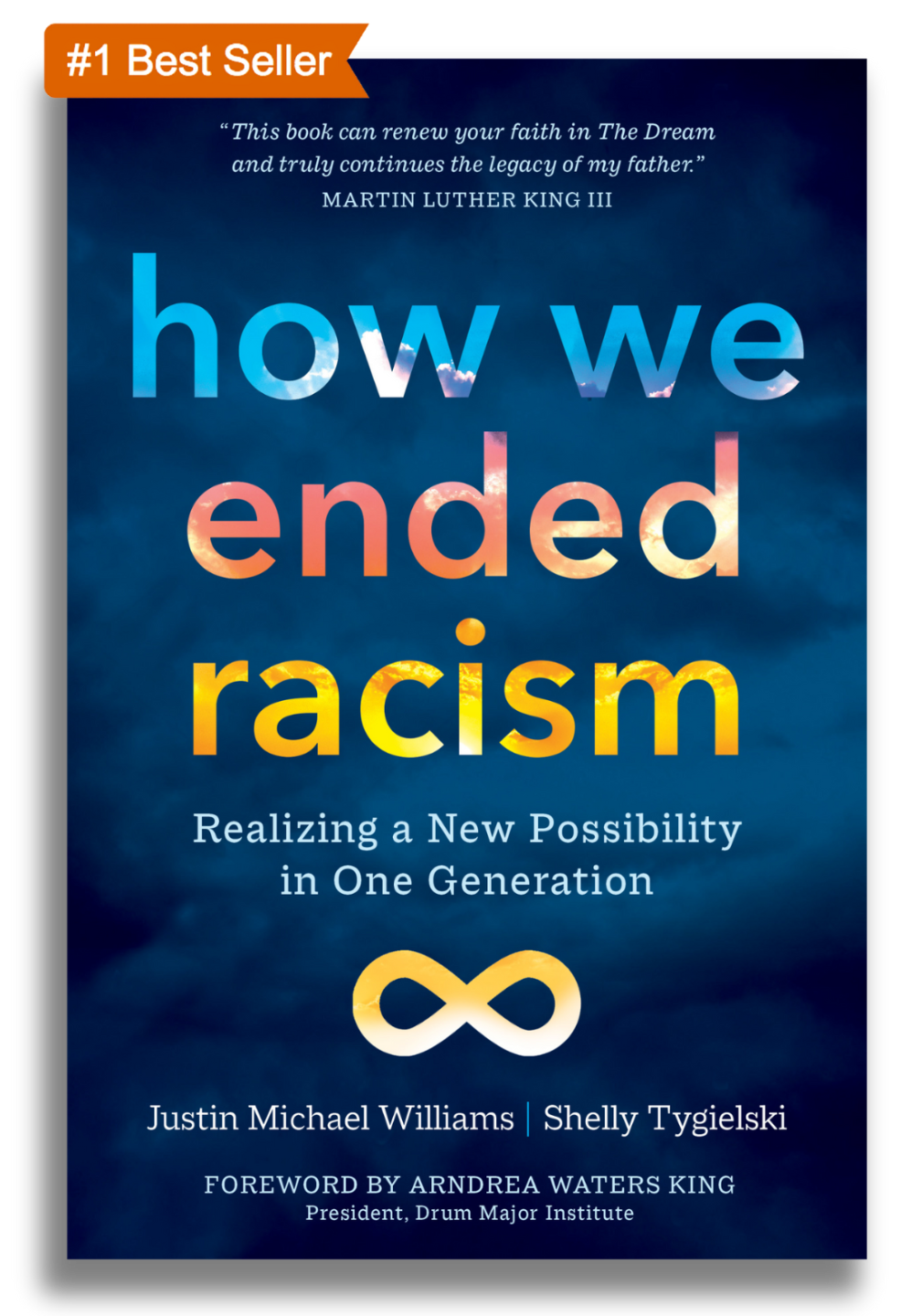
ABOUT THE BOOK
A look back from a future in which racism is no more—inspiring us to start taking positive action today.
"It's the year 2050… and racism has ended."
Could this really be our future? If so, what has to happen now to achieve such a radical change? In How We Ended Racism, Justin Michael Williams and Shelly Tygielski reveal a path for real and lasting global impact—not just talking about it, studying it, or making small steps, but actually ending racism in one generation.
Written for conservatives and liberals—and everyone in between.
Williams and Tygielski draw from a wide array of scientific studies as well as their practical successes in teaching a multitude of diverse groups across perceived "divides" to show us how to shift our perspective and enact lasting change in our families, workplaces, communities, and beyond. Here they provide solid answers to the questions future generations will ask about this pivotal time in history by laying out the eight conditions that needed to arise in humanity to realize this possibility, covering:
- How was it possible? The research on large-scale social change that showed racism could end
- What were the first steps? Overcoming doubt, owning our emotions, and committing to truth
- What were the biggest challenges? Shadow work, big conversations, and forgiveness
- Which tools actually worked? The field-tested methods that allowed us to heal and connect
- Who ended racism? How we—each of us—helped our culture evolve to make racism a thing of the past
"You don't fix racism. You don't fight it. You don't make it better. You end it."
Here is a book that dares to envision a world beyond typical diversity, equity, and inclusion work while providing tools and action steps to support a collective vision of a world without racism—so that our descendants can look back at this era as the time when we decided to end racism for the good of all.
CREATING A NEW NARRATIVE
The 8 Pillars of Possibility
We Anchored Into a New Vision
We learn how to lean into a collective vision, shifting our thinking by understanding the fundamental difference between creating from our limitations of the past and present (which is what we normally do) and creating from the possibilities of our future.
We Agreed on the Truth
We explore fundamental questions and concepts about the concept of truth, what it is and what it isn’t, while providing tools for you to dig into your truth - all of it.
We Owned Our Emotions
We deepen our understanding of our own emotions in order to deepen our connection to ourselves and to others. Then, we closely examine the emotions we associate with race and racism.
We Became Intraconnected
We understand the difference between being intraconnected and interconnection, and we explore our relationship to wholeness.
We Did Shadow Work
We seek to understand our shadow, freeing ourselves from the stronghold of our habits and patterns - especially those that are subconscious - so that they no longer control our destiny. We lean into intergenerational change and commit to understanding “The Big P” (privilege) in a clear manner and grapple with our doubts.
We Practiced Forgiveness
We learn about what forgiveness is and each of its core elements, as well as how to offer forgiveness, ask for forgiveness, and make amends.
We Had Big Conversations
We learn the difference between calling people forward instead of calling people out, the fundamental building blocks of learning to engage in difficult conversations that are productive. We learn how to use a tool called SUSS It Out, which helps us navigate through this while still creating boundaries.
We Took Action
We begin to connect the inner work to the outer world in a tangible way, identifying a project and actionable next steps to contribute in ways - small and large.
POWERFUL KEYNOTE PRESENTATIONS
Presentation and Workshop Topics Include:
How We Ended Racism: Unleashing The Power of Unity Beyond DEI
Canceling Cancel Culture: “Calling Forward” Instead of “Calling Out”
The Power of Belonging: Embracing Authenticity and Connection
Elevate Your Team's Emotional Well-being: Mastering the Art of Forgiveness
Justin & Shelly have spoken at:





























